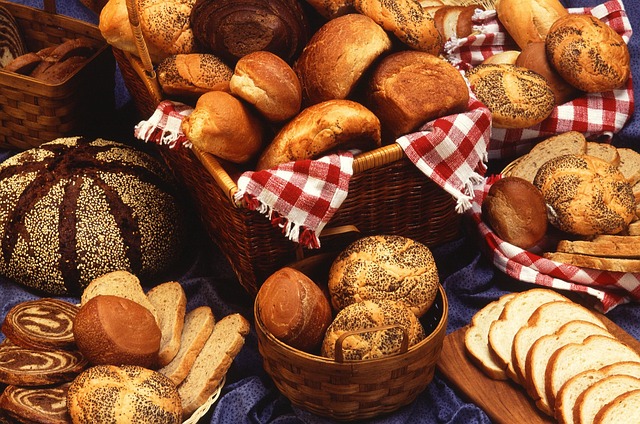Carbohydrates & Metabolism
Are you on a low-calorie diet? Is your main focus on avoiding foods containing carbohydrates? If yes, then you have to be more careful about your health. People on the low-calorie diet usually have the tendency to cut off the supply of carbohydrates to the body. Though it helps you to have a rapid weight loss, after a certain period of time your weight remains constant even if you follow a very strict diet.

The most important fact that people always ignore is the significance of carbohydrates in our metabolism. They view carbohydrates only as fat-producing nutrients. But in reality, they contribute to the 40-60% of the caloric value required by our body in a day. The various symptoms showing the lack of sufficient carbohydrates in our body include dizziness, mood swings, nausea, weakness, and depression.
Type of Carbohydrates
The carbohydrates are mainly of two types – simple and complex. Simple carbohydrates or simple sugars include the sugar in fruits, vegetables and also the additional sugar content added during the processing of various foods. Complex carbohydrates or starch are found in whole-grain bread, cereals, starchy vegetables, and legumes. Complex carbohydrates also contain fiber, which helps mainly in our digestion. Moreover, this fiber also helps in controlling the excessive intake of food and thereby contributes towards weight loss.
The Functions of Carbohydrates
- Carbohydrates are the nutrients which are responsible for the supply of energy to our body, without which we cannot perform our day-to-day activities. The carbohydrates found in the food, after consumption gets broken down into small units of sugar. These sugars are later absorbed by our digestive system and the blood circulation system. From our blood, these sugars get converted into energy and finally reach our vital organs.
- Proteins, which are essential for our muscles and tissues are prevented from getting broken down to release energy by these carbohydrates. Lack of carbohydrates can lead to the complete breakdown of these proteins to substitute for the deficiency in energy and would eventually lead to muscle loss.
Consequences of Carbohydrate Deficiency
- When your body fails to meet the daily requirement of carbohydrates, ketones get produced. Ketones are basically the acidic molecules formed by the partially broken-down fats. Though they prevent the complete breakdown of proteins, they also increase the acidic levels in our body. This also would lead to the increase in the stress level of various vital organs like kidney and liver. They also give you a bad breath.
- Weakness is one of the common symptoms associated with the deficiency of carbohydrates. The energy produced by carbohydrates is mainly used for the proper functioning of our brains. Hence, lack of carbohydrates would result in a headache, lack of concentration and also would diminish the overall capacity of our brains.
- Deficiency in carbohydrates can also be accompanied by the deficiency in the overall nutrients in your body. The majority of the foods you avoid due to the high carbohydrate content in them could also be rich in other nutrients. Hence, reducing their intake would make you deficient in all the necessary nutrients required for your body.
- Lack of carbohydrates would also escalate your hunger cravings during your diet. The absence of fiber in your digestive system which is supplied by these carbohydrates can even affect the complete digestion process.
Conclusion
It is true that the excessive intake of carbohydrates is not good for your body. It is because after absorbing the necessary energy required for the body, the extra amount of carbohydrates get stored as fats. These nutrients, thus promote weight gain to a certain extent. But we cannot deny the fact that they are also equally important to maintain a healthy body. Hence, it is necessary to choose wisely among the various food products available to us.
When you concentrate on low-calorie food products, you should also ensure that your carbohydrate intake is sufficient enough to meet at least 40% of the total calorie required for your daily activities. If not, it can result in your muscle loss and other complex issues within your body.
You have to realize that all the types of carbohydrates are not harmful to your health. There are certain types which are equally important like the other nutrients. When you decide on low carbohydrate intake, you have to focus on avoiding the food items with added sugars and high fats and consume more foods containing dietary fiber. Henceforth, pick out the foods which would provide you with proper nutrition and not any unwanted fats and sugars. Carbohydrates, in short, is a must in your diet chart and is inevitable under any circumstance.
i need more about carbohydarate and your suport on tuition fee coz am down for sure dear